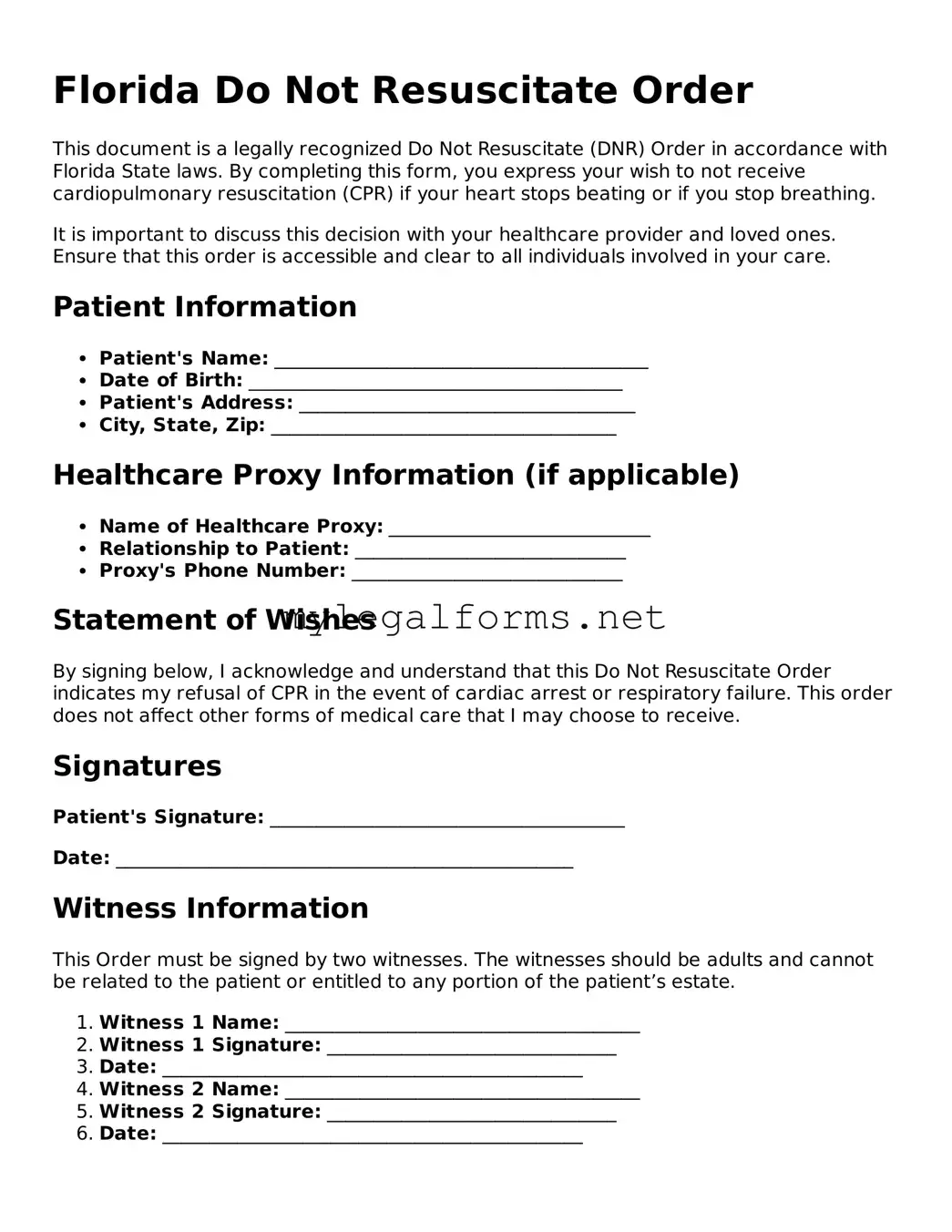Do Not Resuscitate Order Document for Florida State
A Florida Do Not Resuscitate Order (DNRO) is a legal document that allows individuals to refuse resuscitation efforts in the event of a medical emergency. This form is designed to honor a person's wishes regarding their end-of-life care. Understanding how to complete and use this form is essential for ensuring that your preferences are respected in critical situations.
Launch Do Not Resuscitate Order Editor

Do Not Resuscitate Order Document for Florida State
Launch Do Not Resuscitate Order Editor

Launch Do Not Resuscitate Order Editor
or
⇓ PDF Form
Complete the form at your pace — fast
Finish your Do Not Resuscitate Order online and download the final version.